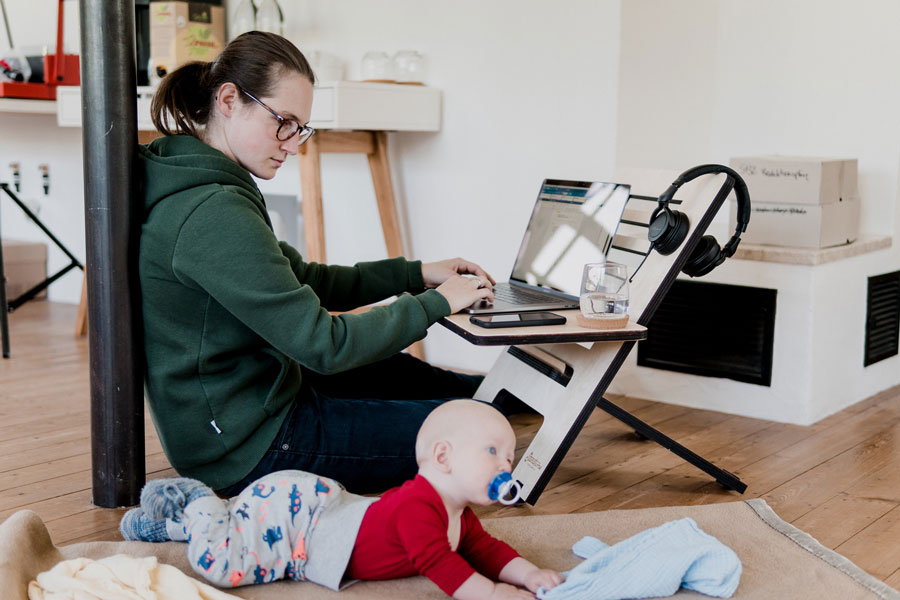
How to manage your mental health when working from home
November 26, 2020
Pet care services – an opportunity for lifestyle retailers
December 15, 2020Need help thinking outside the box?
While you might assume that creativity is entirely innate, you might be surprised to hear that it’s a learnable skill and mindset – you just need to be willing.
At Aquarium, we love creative types and are always looking to add imaginative thinkers and problem-solvers to our team.
If you need some help sparking your creativity, and are wondering what it takes to work for Aquarium, then read our top tips on how to boost your creative thinking skills.
Practice being creative
Creativity is a lot like a muscle, and like any muscle, it can be flexed, exercised and strengthened.
This basically means that the more you practice creative thinking, the more creative you’ll become.
Studies have suggested that people who actively spend time trying to be creative, are more likely to develop sharp problem-solving skills – so the question is, how do you practice being creative?
There’s no one-size-fits-all approach to creative thinking, but the key is to actively pursue it. Perhaps try journaling? Painting? Or even switch off your devices and try a little mindfulness?
One of our favourite ideas is to spend a few minutes each day just writing. It doesn’t matter what, it doesn’t even have to make sense, but just putting pen to paper will trigger and hone those creative synapses, making you better prepared to see things differently in the future.
Creative collaboration
Ever wondered why colleagues ask if they can bounce ideas off you? It’s because it works!
When trying to tackle a problem, it can be easy to get trapped within your own limitations. Sharing your thoughts with colleagues can remove these limitations and open you up to new ways of thinking.
Research has shown that collaboration is great for creativity and problem solving, but the key is finding the right people to collaborate with.
Idea bouncing works best with extroverts or in a group situation where everyone feels comfortable enough to contribute.
So, create a ‘no holds barred’ environment and really let ideas flow. You’ll probably end up with a lot of bad ideas, but you’ll find a couple of good ones, too.
Don’t be afraid of failure
Sometimes, the biggest barrier to creativity is a fear of failure.
Ideas always come with risk, but being afraid to take risks is what inhibits experimentation.
DO NOT GIVE INTO FEAR.
Pushing boundaries and treading paths less travelled is key to creative thinking. Sure, not every line of thought will lead to something fruitful, but you need to give yourself this freedom to fall, learn and pick yourself back up.
Failure is an important part of the creative process and will usually lead to even brighter ideas.
So what we’re trying to say is be brave and don’t be afraid to fail!
Find time to exercise
There are many reasons to exercise. It’s beneficial for your physical health, it’s beneficial for your mental health and it’s beneficial for your creativity.
Numerous studies have shown that exercise is great for creative thinking – of both the ‘convergent’ and ‘divergent’ varieties.
These two areas include simple problem solving and coming up with big ideas.
If you’ve hit a block, go for a walk, run or bike ride. Just half an hour of aerobic exercise can help you imagine new situations – which might be easier to find time for if you’re now working from home.
Even better, exercise has a ‘half-life’ effect on creativity, meaning that you’ll continue to reap the benefits of exercising, hours after you’ve finished.
Learn to communicate your ideas
The trickiest creative hurdle isn’t always cognitive, it’s sometimes communicative.
If you work in a creative role, but feel that you’re not making as much impact as you would like, it might be your presentation skills that need improvement.
It’s often said that if you can’t explain an idea in a few sentences, then you don’t have an idea at all.
While this isn’t strictly true, you should think of this the next time you have that big light bulb moment.
Presenting creative ideas takes some practice, but learning to organise your thoughts into an ‘elevator pitch’ will help sell yourself to bosses. It will also allow you to see your idea more clearly and make a better assessment as to its workability.
If you can’t communicate your creativity, then are you really being creative at all?
To end
Whether you know it or not, we are all creative – sometimes it’s just a case of generating the right conditions.
Do you have your own tips for boosting creative thinking skills? Find us on social media and let us know!





